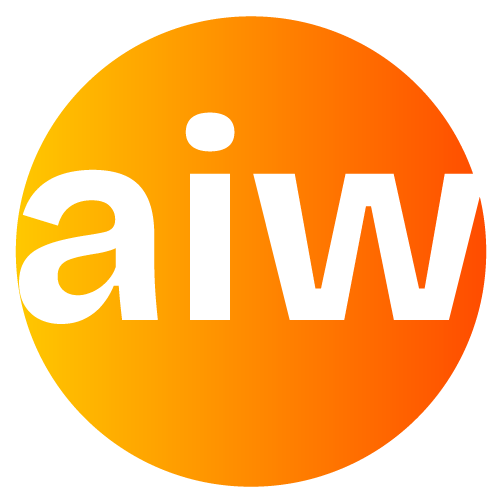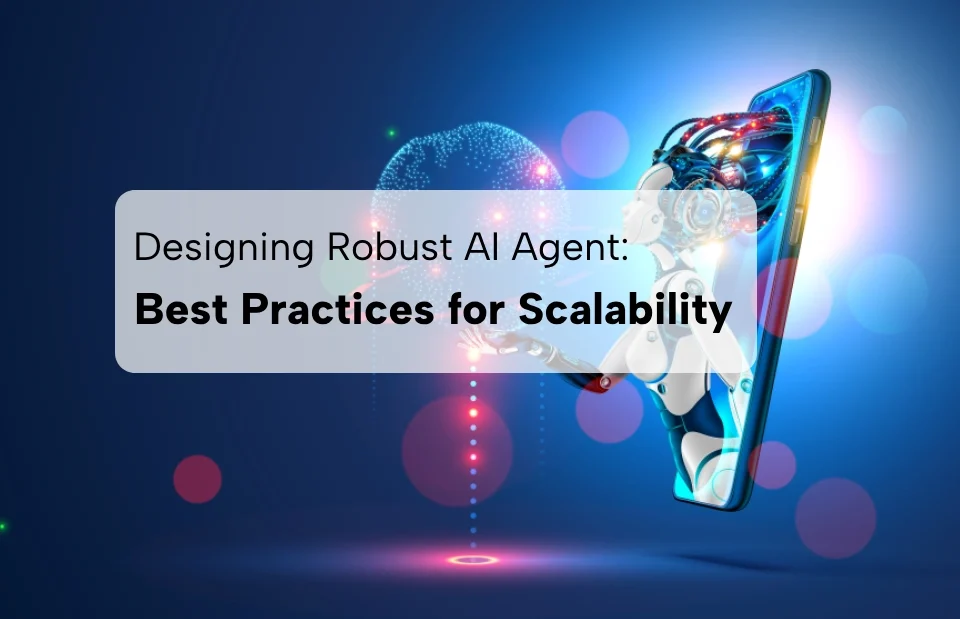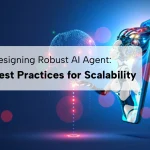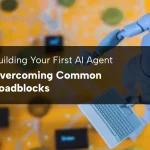As a business owner in USA, you’ve likely heard the buzz about AI transforming customer service, marketing, and more. Building an AI agent for your company might sound futuristic, but it’s quickly becoming practical for businesses of all sizes. In fact, 40% of small businesses in the U.S. are already using AI tools in 2024 (up from 23% in 2023) to save time and stay competitive – a sign that AI agents for business are no longer just for large enterprises.
In this Custom AI Agent Development Guide, we’ll demystify custom AI agent development – explaining what AI agents are, why they matter, and how you can implement one in your business. Even a small company can deploy a custom AI agent to work smarter and delight customers.
Key Takeaways
- Why AI Agents Matter Now: Understand why AI agents are such a hot topic right now.
- What Is Custom AI Agent Development: Find out what this means (and how it differs from a basic chatbot).
- Benefits and Examples: Discover the top benefits of AI agents, with real examples from companies.
- How to Get Started: Get a simple step-by-step plan to create a custom AI agent(including integrating with your tools).
- Best Practices: Learn the common pitfalls to avoid and tips to ensure your AI project succeeds.
Table Of Contents
Why AI Agents matter now
AI isn’t futuristic anymore – it’s here and AI agents for business are changing how companies work. In a recent survey, 77% of companies said they are using or exploring AI, which shows this technology is becoming mainstream. Why now? Because AI agents help companies work smarter and faster.
Customers expect instant answers and personalized service, and an AI agent can deliver that 24/7. Also, many businesses in the USA face high labor costs and staff shortages – AI agents offer a way to do more with a lean team. Simply put, companies see AI agents as key to staying competitive.
What is Custom AI Agent Development?
Custom AI agents are autonomous software systems built to solve specific business problems. Unlike basic chat interfaces, they analyze data, make predictions, and take actions without human input. These agents are tailored to organizational needs, integrating with systems to automate intelligent workflows using machine learning, business rules, and data pipelines. They’re essential when business processes are unique or when competitive advantage depends on AI-driven decision-making.
For example, a finance firm might use an AI agent for real-time fraud detection, while a retailer could automate inventory optimization. A manufacturer with proprietary processes would require a custom AI solution, not a generic tool.
All in all, custom AI agents offer autonomy (independent decision-making), adaptability (learning and improvement), and interactivity (integration with tools, sensors, and databases). Think of them as digital employees—constantly observing, reasoning, and acting in alignment with your business objectives.
Types of AI Agents
AI agents come in several types and levels of sophistication. They range from simple rule-based assistants to advanced self-learning agents. Common categories include:
- Rule-Based (Reflex) Agents – These follow pre-defined “if-then” rules without learning from data. Examples: a spam filter that blocks emails with certain keywords, or a thermostat that turns on the heat when temperature falls below a threshold. They are fast and predictable but inflexible.
- Model-Based Agents – These build an internal model of the environment. For example, a self-driving car uses sensor inputs and past data to predict pedestrian movements and avoid obstacles. Model-based agents adapt their actions based on what they “understand” about the world.
- Goal/Utility-Based Agents – These agents plan actions to achieve specific objectives or maximize a utility function. For instance, a delivery drone agent may plan routes to minimize cost while guaranteeing timely delivery. Utility agents evaluate different outcomes (e.g. speed vs. energy use) to choose optimal actions,
- Learning Agents – These use machine learning or reinforcement learning to improve over time. Modern examples include large language model (LLM) agents that learn language patterns from vast text, or image analysis agents trained on millions of pictures. These agents get better as they process more data.
- Hybrid Agents – Many practical agents combine approaches. For example, an AI customer support agent may use learned language models for chat but follow rule-based workflows for order processing.
In short, types of AI agents can vary from simple assistants to complex systems.
Benefits of Custom AI Agents
Offer tangible benefits that directly impact business performance. By automating tasks and generating real-time insights, they help companies cut costs, improve decision-making, and enhance customer satisfaction.
-
Increased Efficiency & Automation
AI agents handle repetitive tasks like ticket triaging or invoice processing, enabling employees to focus on higher-value work. Support teams using AI tools saw a 13.8% boost in inquiries handled per hour.
-
Better Decision-Making
AI agents process vast data sets quickly, delivering actionable insights. For example, sales and inventory data can be analyzed in real time to optimize pricing strategies.
-
Cost Reduction & ROI
A US-based Bank used AI agents to cut marketing costs by 11%—about $10 million annually. Automating workflows like claims, maintenance, or fraud detection leads to measurable saving.
-
Improved Customer Experience
80% of users engaging with AI-driven support reported positive experiences. AI agents enable personalized, 24/7 service and proactive engagement, which can drive 4–8% higher revenue growth.
-
Scalability
AI agents scale across teams and regions without increasing headcount. BCG notes that AI agents allow organizations to grow faster and more flexibly.
Done right, a single AI agent targeting a key process can unlock immediate ROI and long-term competitive advantage.
The Custom AI Agent Development Process
Building a Custom AI agent involves a structured, multi-step process tailored to your organization’s goals. Here’s a simplified development workflow on how to build custom AI agents for your business:
-
Define Business Objectives
Start with a clear “why.” Identify the specific problem—faster customer service, reduced processing errors, or improved sales conversions—and tie it to measurable KPIs. Align these with strategic goals. For instance, a bank may want an AI agent to flag compliance issues, or a retailer may target automated inventory management.
-
Plan Resources and Budget
Estimate the total cost: model licensing, infrastructure, staff, and maintenance. Budgets often range from $20K to $500K+. Decide whether to build in-house or partner with AI specialists.
-
Assemble the Right Team
Include data scientists, developers, PMs, and domain experts. Collaboration is critical—“a team can make or break your AI agent project.”
-
Prepare the Data
AI Agents rely on high-quality data. Gather relevant sources (customer logs, transactions), clean and normalize them, and ensure privacy via encryption, masking, and governance. Compliance with GDPR, HIPAA, or industry-specific rules is essential.
-
Choose the Technology Stack
Decide between custom builds or cloud AI services. Evaluate platform compatibility, licensing, and security. Avoid fragmented stacks that create integration headaches—consider end-to-end platforms to streamline orchestration and compliance.
-
Design and Build the Agent
Outline tasks the agent must handle—claims processing, product recommendations, etc. Develop iteratively with real workflows, not just rule-based scripts. Connect to core systems via APIs.
-
Test Extensively
Validate with real-world scenarios. Run load tests, capture edge cases, and refine the agent through pilot feedback.
-
Deploy and Monitor
Roll out gradually. Set up dashboards for KPIs, monitor performance, bias, and drift. Keep improving with new data.
With strategic planning and expert collaboration, Custom AI Agent Development turns from concept to business-critical asset.
Common Mistakes to Avoid
- No clear goal: Don’t jump into custom AI agent development just because it’s trendy. Define a clear problem you want the AI agent to solve (for example, shorten customer wait times or automate data entry) – this keeps the project focused and measurable.
- Poor data quality: An AI agent is only as good as the data you train it on. Feeding it outdated or incorrect information will lead to bad results (garbage in, garbage out). Take time to provide clean, relevant data and examples so the AI learns the right things.
- Trying to do too much at once: It’s tempting to want an AI agent that does everything, but that usually backfires. Begin with a narrow scope (one type of task or department) and expand later once it’s working well.
- Ignoring oversight and updates: Even after your AI agent is up and running, keep humans in the loop. Monitor its interactions and update it as things change.
Conclusion: Partnering for Success
Custom AI agents are powerful catalysts for business transformation, but they require careful design and execution. For U.S. enterprises in finance, e-commerce, SaaS, manufacturing or beyond, success hinges on aligning AI solutions with strategic goals and operational realities. Focus on the factors that matter most to CXOs: demonstrable ROI, scalability under load, bulletproof security, strict compliance, open integration, and rapid time-to-value.
Building custom AI agents is complex, but you don’t have to do it alone. AIWorkfllow specializes in end-to-end AI agent development for enterprises. Our experts can help you identify the right use case, navigate regulatory requirements, and deliver a solution that integrates seamlessly with your systems. Whether you need to create a custom AI agent from scratch or enhance an existing platform, AIWorkfllow brings the technical know-how and strategic guidance you need.
Ready to unlock AI’s potential for your business? Contact AIWorkfllow today to discuss your custom AI agent project and start realizing real value.
FAQs
What is a custom AI agent?
It’s like a virtual AI assistant built and trained for your business’s specific needs. Instead of a generic bot, it uses your data and rules to perform tasks or make decisions for you.
How can AI agents benefit my business?
AI agents automate routine tasks, work 24/7, take decisions on your behalf and analyze data fast. They save your business time and money while improving customer service and operations.
Is custom AI agent development expensive?
Not necessarily. You can start with an affordable, small-scale project (using cloud AI services) and only invest more once you see positive results.
Who can help me develop a custom AI agent in the USA?
There are specialized firms that do this. For example, AIWorkfllow is a provider in the USA that helps businesses create an AI agent in USA and can guide you through the process.
Ajay Singh





